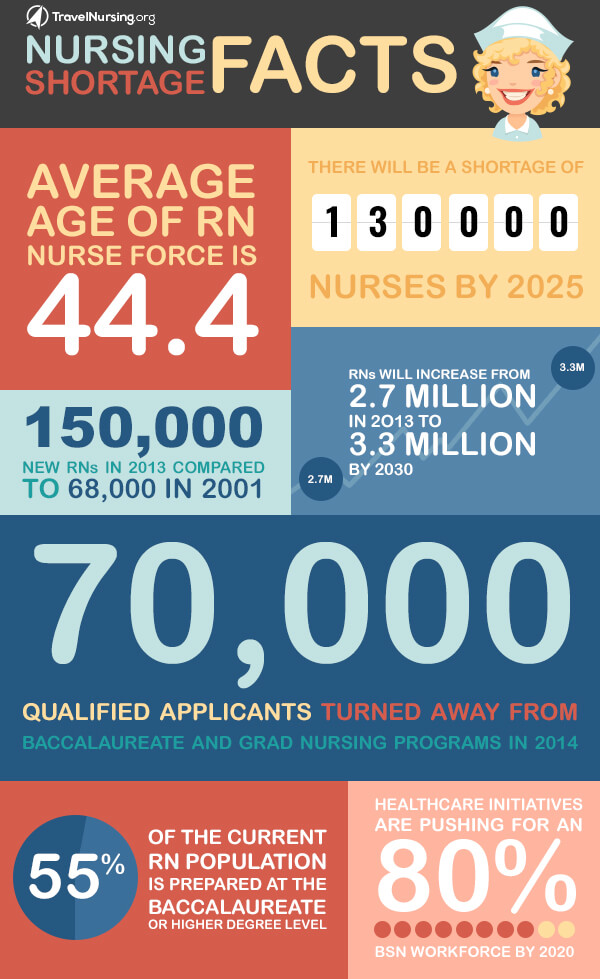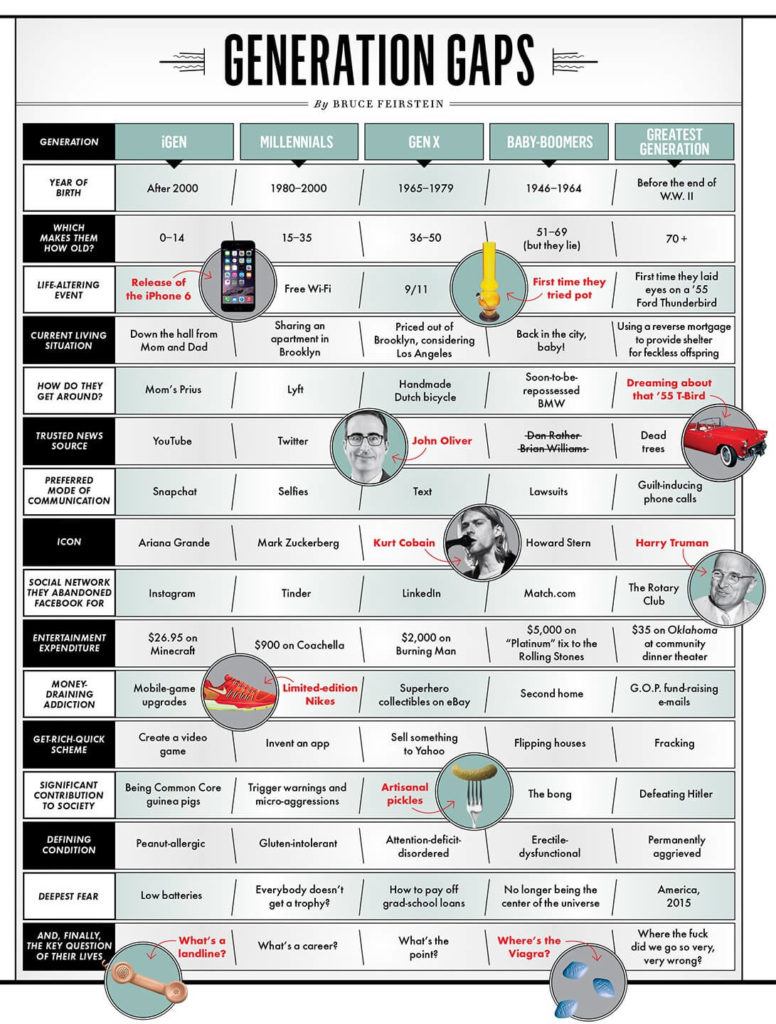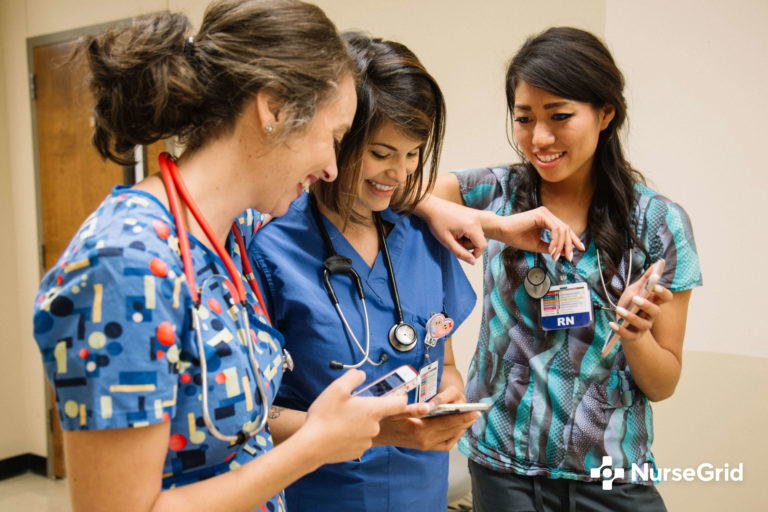In a previous blog post, we wrote about nurse managers being caught in the middle of a tug-of-war, trying to balance competing priorities: the need to improve care quality and patient satisfaction on one hand and reduce costs on the other. To further complicate the friction, there are other forces applying pressure to this already stressful situation.
By 2030, the number of Americans over the age of 65 will soar by 75% to 69 million, or one-fifth of the population. That’s sure to tax an overburdened healthcare system, considering that the overwhelming majority of Medicare beneficiaries already have one or more chronic health conditions.
At the same time, a significant number of today’s nurses fall into that baby boomer category. One-third of the current nursing workforce is expected to retire in the next 10-15 years. By 2025, some experts predict the nursing shortfall will be “more than twice as large as any nurse shortage experienced since the introduction of Medicare and Medicaid in the mid-1960s.”

- Nursing shortage facts from TravelNursing.org
This will leave an increasing number of millennial nurses to fill the shoes of those seasoned nurses, the backbone of calm, comfort, and wisdom that patients and their families have come to count on. That’s a heavy load to carry for those on the front lines and the nurse leaders preparing them to take the reins. So what can nurse managers do now to mind the expanding gap and ensure that today’s millennials are up for the challenge ahead?
Pam Cipriano, president of the American Nurses Association, says,
“When we think about nurses replacing retiring nurses, there is an experience gap. People like me who have 40 years of experience will be replaced by individuals with three to five years of experience. Employers need to focus on the fact that they have a responsibility and a burden to ensure that new nurses can maintain expertise and wisdom at a patient’s side.”
There are plenty of stereotypes about this tech-savvy new generation—entitled, self-absorbed screen addicts with a poor work ethic, for example—which, like most stereotypes, may be based on nuggets of truth but also tend to over-simplify a large, diverse set of people. Today’s more experienced nurses and nurse leaders and this new screen-dependent generation of Gen Y nurses may seem diametrically opposed in some cases, as any two people facing a wide generational gap might.

- Generation gaps chart from Vanity Fair
And while it’s certainly true that millennials bring plenty of new demands to their roles as nurses, if nurse leaders can start to address their unique expectations, it can bring positive changes to entire nursing teams and departments, and patients as well.
Following are some common expectations that millennials have and ways you can embrace them to benefit you, your team, and your patients:
Technology:
This is a generation that came of age just as the Internet, social networking, and smartphones erupted. They don’t know life any other way and are driving much of the rapid change the world is experiencing. They’re used to the convenience and speed that technology brings to every facet of life and have little patience for manual, cumbersome systems—often the existing mode of operation in many healthcare settings. They’re the ones who will move the field forward through their demands for efficiency—and also the ones who will help the current regime adapt to new technology.
Whether you’re trying to fill an open shift, process a swap request, or inform your team of a staff event, be open to communicating on their terms, whether it’s through a mobile app or other tech-savvy means; paper, phone trees and mass texts may not elicit the responsiveness you’re looking for. The same goes for training. Consider switching up in-class sessions with video or other online tutorials.
Flexibility:
Gen Yers are big on life-work balance and the freedom to create their own schedules. Research shows that 81% of millennials think they should be allowed to make their own hours at work, compared to 69% of boomers. In a field where managing staffing and scheduling is a perpetual challenge, this can be a tricky expectation to deal with. But having a more satisfied workforce willing to transition with your patient population and their needs may end up lessening your burden.
If your department is not quite ready for full-blown self-scheduling, implementing a system that gives nurses more flexibility around shift swaps and more control over indicating their own preferences and availability for open shifts will give them room to breathe while helping you keep staffing levels steady.
Open Communication & Collaboration:
It’s rare to see someone from this generation not face down, absorbed in their smartphone. Staying connected to friends, family, coworkers, and everyone in their lives defines them. This feeds their penchant for collaboration and transparency too. They expect quick responses and want to feel like they’re part of a team, doing work that’s meaningful.
To that end, it’s important to be clear about your expectations from the get-go. Don’t sugarcoat anything. Err on the side of over-communication, whether that means letting them know during an interview they’ll be on nights for the first year, running through your facility’s code of conduct during the first week on the job, or nipping a habit of arriving late in the bud. Talk to them. Expose them to management discussions and solicit their ideas too, so they feel valued, invested, and interested in pursuing leadership opportunities.
Independence:
While millennials want help, they don’t want to be micromanaged. They prefer a coach and mentor, not a boss breathing down their necks. Naturally, they lack the hands-on, practiced skills to assess patients and diagnose acute health issues, so they will need your experienced oversight. Don’t be surprised, though, if they consult an online resource about a condition before engaging you. They may even unearth new research that saves a life–or at least saves you some time.
Nursing, the cornerstone of patient care in our hospitals and medical facilities, will rely heavily on Gen Y in the coming years. Assuming they receive the appropriate coaching and workplace opportunities, we may all be the lucky recipients of their insistence to question everything, challenge the status quo, and balance life and work. But nobody’s saying it will be easy!
What are you doing to mind the millennial gap? And if you’re a new nurse, what would help you? We’d love to hear from you in the comments below, or feel free to give us a shout at hello@nursegrid.com.
